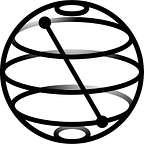I’m a Musician, and Here’s Why I’m Learning Quantum Computing
Quantum computing is a whole new computing paradigm that uses the physics of subatomic particles in order to perform calculations. However, quantum computers aren’t just for physicists and computer scientists. Researchers working in fields from chemistry to finance, business people, and even artists and musicians are entering this field to see whether quantum computing might offer benefits, speedups, or just a new way to approach their work. In Here’s Why I’m Learning Quantum Computing, we’re telling the stories of people joining the Qiskit open source quantum computing developer community from a variety of fields.
By Omar Costa Hamido, artist, Ph.D Student, and Qiskit Advocate
I came to quantum computing a little bit by accident — but it was also inevitable at the same time.
A year after I finished my masters, I stumbled upon this Quantum Computing Playground that Google launched, which immediately piqued my interest. It so happened that a symbol I was using in the work I was creating happened to resemble a bra and a ket, the notation that is used to represent quantum states.
I’m a performer, composer, and technologist who first studied visual arts. I took a masters in music theory and composition, where I brought together my interests in both music and visual arts, working on the intersection between music and painting, and their associated compositional processes. Thinking about the relationship between the material aspects of music and painting led me to a place of deconstructing both sounds and images into subatomic particles, metaphorically speaking — trying to understand the most basic components of both of these different ideas. Running into quantum computing was inevitable because I was fascinated with the universe and understanding things at their deepest level; anyone interested in the fabric of the cosmos will eventually run into quantum mechanics, and in turn, quantum computing.
Then, in 2018, I learned that IBM had released a quantum processor available on the cloud, I started studying quantum computing more seriously, and decided to make it a core component of my research. Today, I’m a Ph.D at the University of California, Irvine, doing research on quantum computing and music composition, while developing composition tools that use quantum computing in some way.
My first experiments with quantum music composition began in early 2019, and then later that year at the Qiskit Camp Europe, where I created the quantum synthesizer. There, I used a quantum computer to generate waveforms. The innate noise of quantum computation changed the shape of the waveforms, making them more complex. I also often work in the improvisational and interactive space; for one live-performed piece, I use a small quantum program, almost like a random number generator, to control audio effects or generate new sequences of notes based on certain rules or conditions.
As a musician, learning quantum computing was challenging mostly because I had to go back to study the required mathematics, like linear algebra. Even today it’s challenging, but I’m still learning, and will continue learning for a long time. But I feel like it’s a great privilege to be doing this research at a moment in time where something so new is happening. I’m motivated to produce work that will serve as a contribution to allow researchers across different fields to converse and make this technology useful for everyone.
So, how can quantum computers be useful for music composition? Well, perhaps one day, a more powerful computational system will make certain computational processes faster — but we’re not there yet. Today, I often think about how to recreate the processes I do classically, but now with very different tools. This different way of thinking about the act of composition is like the difference between writing down notes on a sheet of paper versus using a computer program to compose; the final result might be a printed sheet of music either way, but the process of getting there is different; in this difference, an emerging compositional paradigm might lead to new and different-sounding music (e.g. the way that today’s electronic music sounds different from baroque-era orchestral music).
If you’re a musician, it’s a very awesome moment to get into quantum computing because of all of the resources that are available. There aren’t a lot of tools specifically made for musicians right now, but that’s where my work, and maybe your own research, comes in. If you’re curious, definitely reach out to some of the other people who are working in this space. It’s a lot of work, especially if you’re someone like me without a lot of the math background, but I just tried to enjoy it. I’ve had a lot of fun with the adventure myself.
You can check out more of my work at quantumland.art, or get started with Qiskit here!
